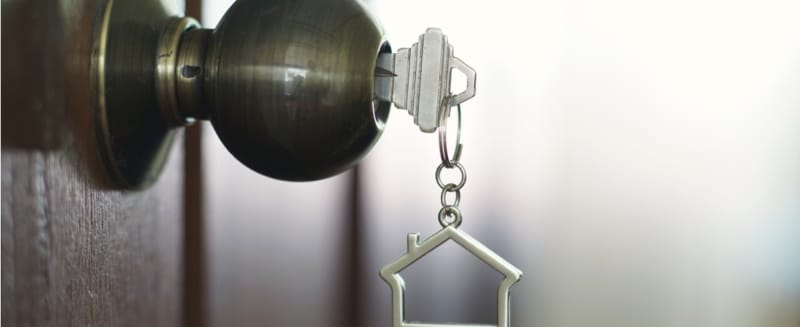Buying a house after retirement can be a good or bad idea. Deciding if it’s better to rent or buy a house after retirement requires careful planning.
Q: I am a 66-year old single female. I currently rent a home for $875 per month (low for this area because I have been in this location for 9 years). My income includes Social Security (approximately $1,600 per month), earnings from two part-time jobs (approximately $170 per week), and two small retirement accounts that provide me with about $340 per month.
I have about $75,000 in savings. I have no credit card or other debt. I am considering purchasing a house. I am preapproved for $90,000 but the homes in my area are crazy expensive.
The homes I have looked at that I would feel comfortable living in start at about $130,000 (but are mostly higher). In order to purchase a property that expensive, I’d almost deplete my savings and use it towards the down payment and closing costs but my monthly payments would probably be less than what I’m paying now.
At my age would it be better for me to continue to rent and not worry about maintenance and taxes or a good investment to purchase?
A: We don’t think there is a right or wrong answer for you. This may be a great time for you to buy a home but it also may be the right time for you to stay put and continue to rent. That sounds pretty wishy-washy, but let us explain.
One issue that is important to consider is the length of time you plan to stay in your current rental or in a purchased property. If you had mentioned in your letter that you plan to move to a retirement community within a couple of years, buying now may not make much sense.
If you had said that you plan to stay put for as long as you can live on your own and your friends and family are all nearby, then the issue is finding a home that can allow you to live there for the next 10 or 15 years.
If you are considering buying a traditional multi-level home with stairs, you might reconsider that and think about your health and lifestyle in your 70s. While you may still be quite mobile for years to come, multi-story homes come with their challenges. If you have bedrooms on an upper floor and a basement level that you must access, those stairs could pose problems for you over time.
If the home you have found is on a single level, like a ranch, the next issue for you to consider is the upkeep, maintenance and repair for the home. As a renter, you might expect your landlord to take care of quite a fair number of items around a home, but as an owner, you’ll be responsible for all of these items. You will need to be prepared to handle major items as well as minor ones.
From your letter, you have about $2,700 of monthly gross income coming in and you currently only pay about 32 percent of your gross income towards your rent. The amount you’re paying now is probably at the top end of what we’d like to see you spend towards your housing expenses. And that rent doesn’t include what you pay towards your renter’s insurance which you should have in place.
If you could pay less per month, that would be great, but we don’t think you should sacrifice your peace of mind and put all of your savings into buying a home. You might want or need that money for other purposes. Ideally, you’d want to go from your current rental to a home if you could keep your savings somewhat intact or still maintain a fair amount of money on hand for medical expenses, vacations, or any other expenditures you may want to make.
We certainly would never recommend that you buy a home and be left cash poor. If you are cash poor and worry every day about money, it would defeat the purpose of owning a home for you.
Finally, if you own a home, you shouldn’t expect a home to be an “investment” because the first and foremost reason for owning a home is to have a place for shelter and to call home.
Part of buying a home are all the costs involved with the purchase of the home, the move to the home, the redecorating of the home and many other invisible costs that people encounter when they move from boxes, tape, new furnishings to new kitchen appliances. When you sell a home, you have greater costs associated with the sale especially when you consider the commission you might have to pay a real estate broker on the sale. That’s all money out of your pocket.
Given these costs and expenses, you should expect to live in a home at least 5 to 7 years before you break even. You have some thinking to do before buying a home. Sit down, go through your anticipated expenses of owning a home and what possible expenses you’ll have over the next 10 years living in that home. Can you see yourself in that home 10 years from now? Will the expenses of owning a home be too much for you to handle? Are you looking to settle down or do you want flexibility over the next several years? And, above all, are your finances in a place to allow you to lock up cash in a home?
As you answer these questions, you’ll be in a better position to decide whether to buy or not. While interest rates are at historic lows, you know that real estate taxes will probably continue to go up as well as other home expenses. Will your income continue to come in as it does now or will it grow as other expenses grow?
One final issue, if you own a home, what impact will paying interest on your home mortgage and paying real estate taxes have on your federal income tax return? If you get a good tax benefit, you may look at your situation and see your financial picture a bit differently.
As you make your decision, write to us and tell us what you’ve decided to do.







Leave A Comment